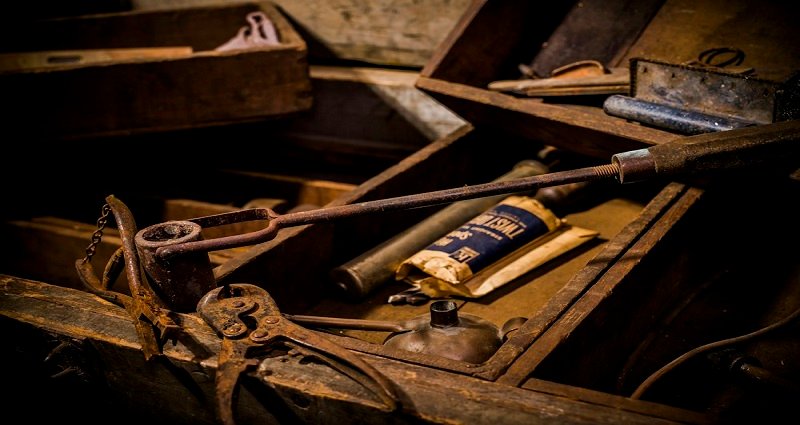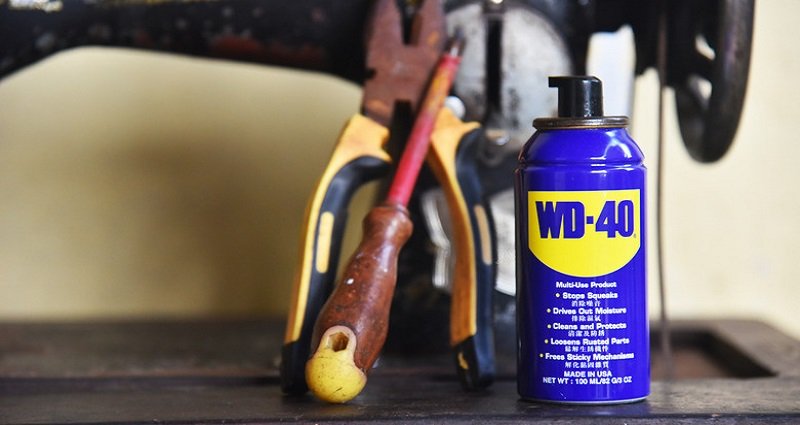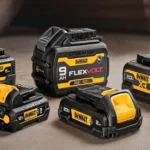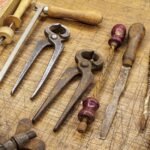Rust can be a persistent problem, even in warm and dry storage spaces. The frustration of finding your prized tools, such as punches, chisels, and files, succumbing to rust is a common experience. This concern is not limited to personal tool collections, as professionals, like machinists, also grapple with the challenge of preserving rust-prone tools. Therefore, it is important to learn how to keep tools from rusting.
Say Bye To Rust & Keep Your Tools In Top Shape
This article will explore various strategies to keep tools from rusting. From discussing rust prevention methods to rust-preventing tools, this article aims to provide insights into preserving your tools.
How To Keep Tools From Rusting In Garage?
Investing in quality tools for your garage comes with the responsibility of proper maintenance to prevent rusting, which can significantly impact their longevity. Here are ten detailed ways to keep your tools rust-free in the garage:
Choose The Right Storage Material
Opt for metal or steel storage cabinets or toolboxes. These materials are resistant to rust and provide a protective environment for your tools.
Apply A Protective Coating
Prioritize tools with anti-corrosion coatings. If your tools don’t have this feature, consider applying a thin layer of oil or specialized rust-inhibiting spray to create a barrier against moisture.
Maintain Optimal Humidity Levels
Keep the garage well-ventilated to prevent humidity buildup. Use dehumidifiers to control moisture levels, reducing the chances of rust formation on metal surfaces.
Use Silica Gel Packets
Place silica gel packets in toolboxes or storage containers. Silica gel helps absorb excess moisture, creating a drier environment that is less conducive to rust.
Implement Proper Tool Organization
Avoid overcrowding tools in storage spaces to keep tools from rusting in the garage or toolbox. Well-organized tools allow for proper airflow and visibility, making it easier to detect any signs of rust early on.
Apply Rust Inhibitors
Consider using rust inhibitors such as WD-40 or vapor corrosion inhibitors (VCIs). These products release compounds that form a protective layer on metal surfaces, preventing rust formation.
Regularly Inspect And Clean Tools
Establish a routine for inspecting and cleaning your tools. Remove any dirt, debris, or residues that can contribute to rust. Use a brush or rag to wipe down tools after use.
Utilize Desiccant Bags
Place desiccant bags in tool storage areas. Similar to silica gel, desiccant bags help absorb moisture, reducing the risk of rust on your tools. It is a great method to keep tools from rusting in an unheated garage.
Invest In Rust-Resistant Materials
When purchasing new tools, prioritize those made from rust-resistant materials such as stainless steel or alloys with anti-corrosive properties.
Store Tools In Climate-Controlled Cabinets
If possible, invest in climate-controlled cabinets for sensitive tools. These cabinets regulate temperature and humidity, providing an ideal environment for preventing rust.
How To Keep Tools From Rusting In A Shade?

Woodworking and garden tools are significant investments that require proper care to prevent rust and corrosion. Storing tools in a shed, often exposed to hot and humid conditions, can accelerate rusting. Here are key tips to maintain a tool-friendly environment in your shed:
- Choose the Right Material: Opt for a metal or steel shed, as they withstand extreme weather conditions and are durable. Galvanized steel is a wise choice for longevity.
- Consider Shed Size: Select a shed size that allows for efficient storage without overcrowding. This ensures you can easily monitor your tools for any signs of rust.
- Address Dampness Concerns: Keep gutters clear to prevent moisture buildup. Avoid surrounding the shed with gardens, as soil retains water. Proper drainage is essential for maintaining a dry environment.
- Ensure Ventilation: Install windows, air vents, or ceiling fans to promote airflow and reduce moisture levels. Adequate ventilation is crucial in preventing rust.
- Humidity Control: Combat high humidity by installing a dehumidifier. Placing cat litter, sawdust, or charcoal briquettes inside can help absorb excess moisture.
In addition to environmental considerations, make your tools rust-resistant:
- Use Vapor Corrosion Inhibitors (VCI) Products: Store tools in VCI zipper bags, mesh liners, or capsules. These products create a protective coating on metal surfaces, preventing rust formation.
- Non-Slip Features: Line tool containers with anti-corrosion non-slip mesh liners for long-lasting protection.
- Address Existing Rust: If tools are already rusted, follow these steps:
- Remove dust and grease with dish soap.
- Scrub rusty tools with an abrasive pad or vinegar.
- Use a drill-powered wire wheel for stubborn rust.
- Soak tools in an oxalic acid solution.
6 Best Oils To Prevent Rust On Tools

Several oils can be used to prevent rust on tools. Some of the most commonly recommended oils include:
- Mineral Oil: Mineral oil is a popular choice for preventing tool rust. It forms a protective barrier on the surface of the tools, preventing moisture from reaching the metal and causing rust. It is also food-safe, making it suitable for tools that come into contact with food during use.
- Camellia Oil: Camellia oil is a traditional Japanese rust protector that offers long-lasting protection against rust. It penetrates deep into the metal, forming a protective layer that prevents rust formation.
- WD-40: WD-40 is a multi-purpose oil that can be used to clean and protect tools. However, it is not as effective at preventing rust as some other oils, such as mineral oil or camellia oil.
- ATF (Automatic Transmission Fluid): ATF can be used as a rust-preventing oil for tools, especially cutting tools like reamers and drill bits.
- Lanolin Spray: Lanolin spray can protect tools from rust, especially in hard-to-reach areas.
- American Bonsai’s XOil: American Bonsai’s XOil is a space-age product that has been recommended by some users for its effectiveness in preventing rust on tools.
Suggested Reads: How To Use A Tool Belt Safely And Efficiently
The Final Words
Keeping tools from rusting is essential for their longevity and effectiveness. Rust can cause tools to become brittle, broken, and even dangerous if left untreated. The tips provided in the article, such as keeping tools dry, using rust inhibitors, and proper storage, can help prevent rust formation on tools.
By implementing these measures, you can keep your tools rust-free and in good condition for longer periods It will save you money and ensure your tools are safe to use.
FAQs (Frequently Asked Questions)
Why do my tools rust even in a warm and dry place?
Despite a warm and dry environment, tools can still rust due to exposure to moisture and air. This is especially common for tools made of high-carbon steel, such as punches, chisels, and files.
What do machinists do to prevent rust on tools that must not rust at all?
Machinists often use rust-inhibiting oils or coatings to prevent rust on tools that must remain entirely rust-free. Additionally, they may employ specific products like camphor or Swarfega Duck Oil for effective rust prevention.
Is oiling tools a time-consuming task, especially for a large number of tools?
Oiling tools can be a significant job, especially when dealing with numerous tools. However, using rust inhibitors like WD-40 or other lubricants can provide a protective layer against moisture and air, reducing the need for frequent oiling.
How can I keep my tools free of rust?
To keep tools free of rust, it is essential to keep them dry, use high-quality paints or rust-resistant coatings, and oil them regularly. Proper storage in a clean and dry environment is also crucial for preventing rust on tools.
What are some simple steps to protect tools against rust and corrosion?
Simple steps to protect tools against rust and corrosion include keeping tools dry, maintaining and cleaning them regularly, and using rust inhibitors or rust-resistant coatings.

Adam is a tool geek who just loves making and breaking things. Doing the home improvements works and repairing things with his tools is his favorite past time. He loves to keep his tools arranged and sorted. On this blog, he shares his experience and knowledge.








